You need to discuss confidentiality. Are the survey answers associated with a name? Is this information sold or distributed?
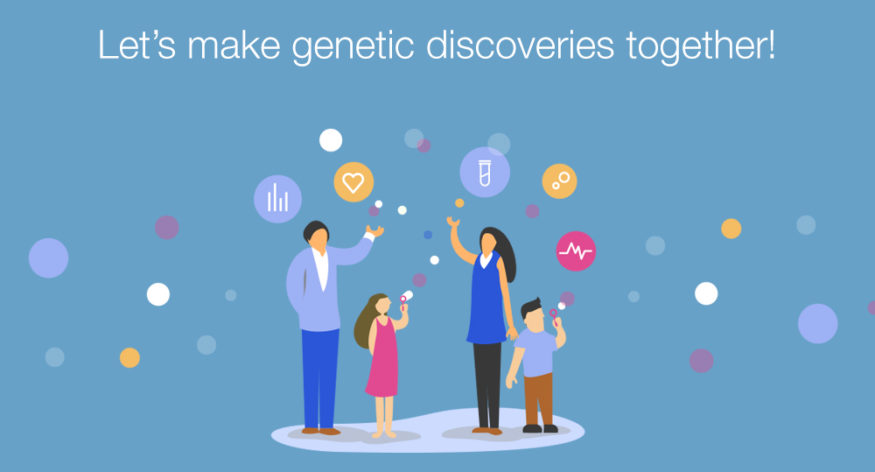

At MyHeritage, we constantly develop new ways for our users to explore their origins and learn more about who they are. Our Science Team, led by world-renowned genetics pioneer Dr. Yaniv Erlich, recently released the Surveys research project to help us investigate how genetics affects various aspects of our lives, with the cooperation of the MyHeritage community.
These surveys analyze the relationships between genetics and behavior, personal characteristics, and culture. The surveys will help us see what makes people similar and what makes them different, based on their genes. With your answers, you will help contribute valuable data that may lead to significant scientific discoveries.
The surveys are easy to complete and answering them can be fun too.
We invite all MyHeritage users who took a MyHeritage DNA test or uploaded their DNA data to MyHeritage, to take part in this project. If you already began answering, feel free to come back and complete more surveys.
Many thanks to those of you who have taken the surveys — we’ve received over 2 million answered questions so far!
We ensure that all of your information and results will remain private. When analyzing results, we remove personal information (such as your name and email) to protect your privacy and never share your personal data with anyone.
We aggregate your responses with those of thousands of MyHeritage users. Once you complete a survey, you will see a summary of results and how your answers compare with other users.
How to take the surveys:
If you are a MyHeritage DNA user, begin taking our surveys here or, after logging in, hover your mouse cursor over the DNA tab and select Surveys:
The surveys cover the following topics: demographics, physical traits, hobbies, professions, personal and family health, diet, happiness, political opinions, handedness, and sleep. This is only the first batch — we will continue to release more!
On the surveys homepage, you will have a variety of surveys to choose from. See below:
Once you choose a survey, begin answering questions. There is a description at the top and it will indicate how long it should take to complete. If you don’t want to answer a question, simply skip it and move to the next one. The surveys are intuitive — each time you answer a question, the next one will appear.
Here is an example of the Traits Survey, which examines how genetic and non-genetic factors contribute to how we look. By filling out which special physical features you have, we can learn more about the association of genetic markers with physical traits.
Once you complete a survey, you will receive a summary of the results and see how your answers compare to other MyHeritage users. Here’s an example summary for the Hobbies Survey:
The surveys are currently available in the following languages: English, German, Norwegian, Dutch, Swedish, Spanish, Finnish, Danish, Russian and Brazilian Portuguese. More languages will be added soon.
Initial discoveries:
Our Science Team has already made some interesting observations using the survey responses. For example, we found a correlation between a person’s body mass index (BMI) and their history of heart attacks. See the graph below:
In this graph, BMI is on the x-axis. BMI is calculated as the ratio between your weight and your squared height, or BMI = weight (in kilograms) / height2 (in meters squared). In medical literature, BMI is a measure of body fat and indicates whether your weight is healthy. A healthy BMI is considered to be between 18.5 and 25. If your BMI falls between 25 and 30, it typically means you are overweight. A BMI of 30 or more indicates obesity.
On the y-axis, we show the frequency of heart attacks per sample set. The lines are low for the lowest and highest BMIs because fewer survey takers reported having those BMIs.
If you look at the vertical distance between the “heart attack” and “no heart attack” lines, you can see the differences in risk of having a heart attack. When the red line is higher than the blue line, there is extra risk for heart attack. In the graph, you can see that MyHeritage survey takers with a BMI greater than 28, have an increased risk of having a heart attack. On the other hand, when the blue line is higher than the red line, there is a statistically lower risk for having a heart attack.
This is seen on the left side of the graph: MyHeritage survey takers with a BMI lower than 28 have a decreased risk for heart attack. This is consistent with common scientific knowledge about the impact of being overweight in relation to heart attacks.
Similar results also prove a correlation between heart attacks and smoking. See the chart below:
The x-axis of this chart indicates whether a user is a smoker or not, according to the surveys. The y-axis measures the frequency of heart attacks. 2.6% of our users who don’t smoke have had heart attacks, and 5.1% of our users who do smoke have had heart attacks. According to our survey data, people with a history of smoking have a higher risk of having a heart attack, which is supported by well-established scientific data.
These are only a few examples of the data we are analyzing — by answering more surveys, you can help our team make the next scientific breakthroughs.
Stay tuned
These are our first surveys — we will continue to add more to learn about other topics related to genetics. Thank you for helping us further our scientific research and make discoveries that can help you and your family learn more about what makes you unique.
The surveys’ main goal is to investigate how genetics affects different aspects of our lives — at this point they are open only for MyHeritage DNA users.
Ready to get started? Answer some surveys now.
Thank you!
MyHeritage Team



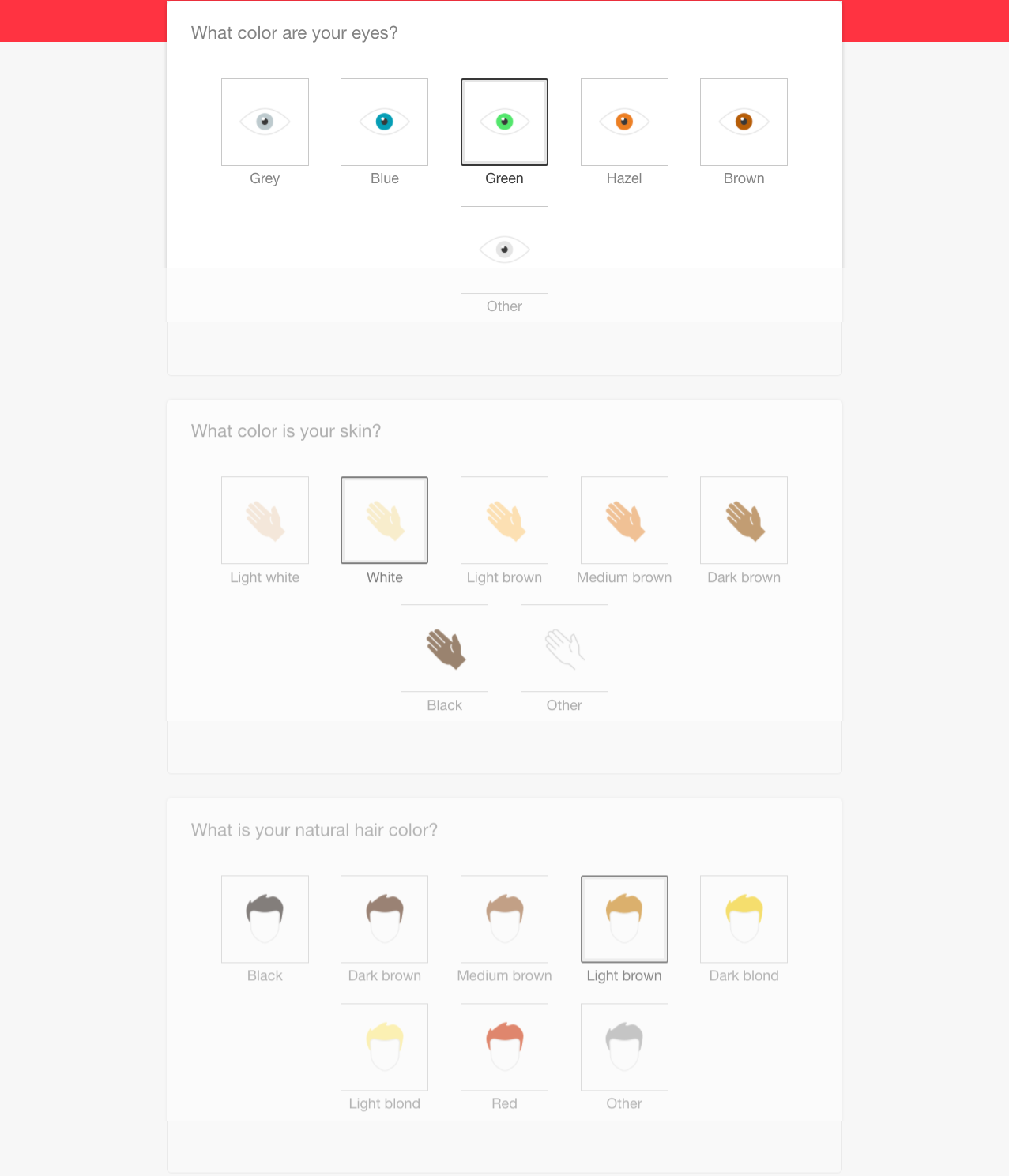
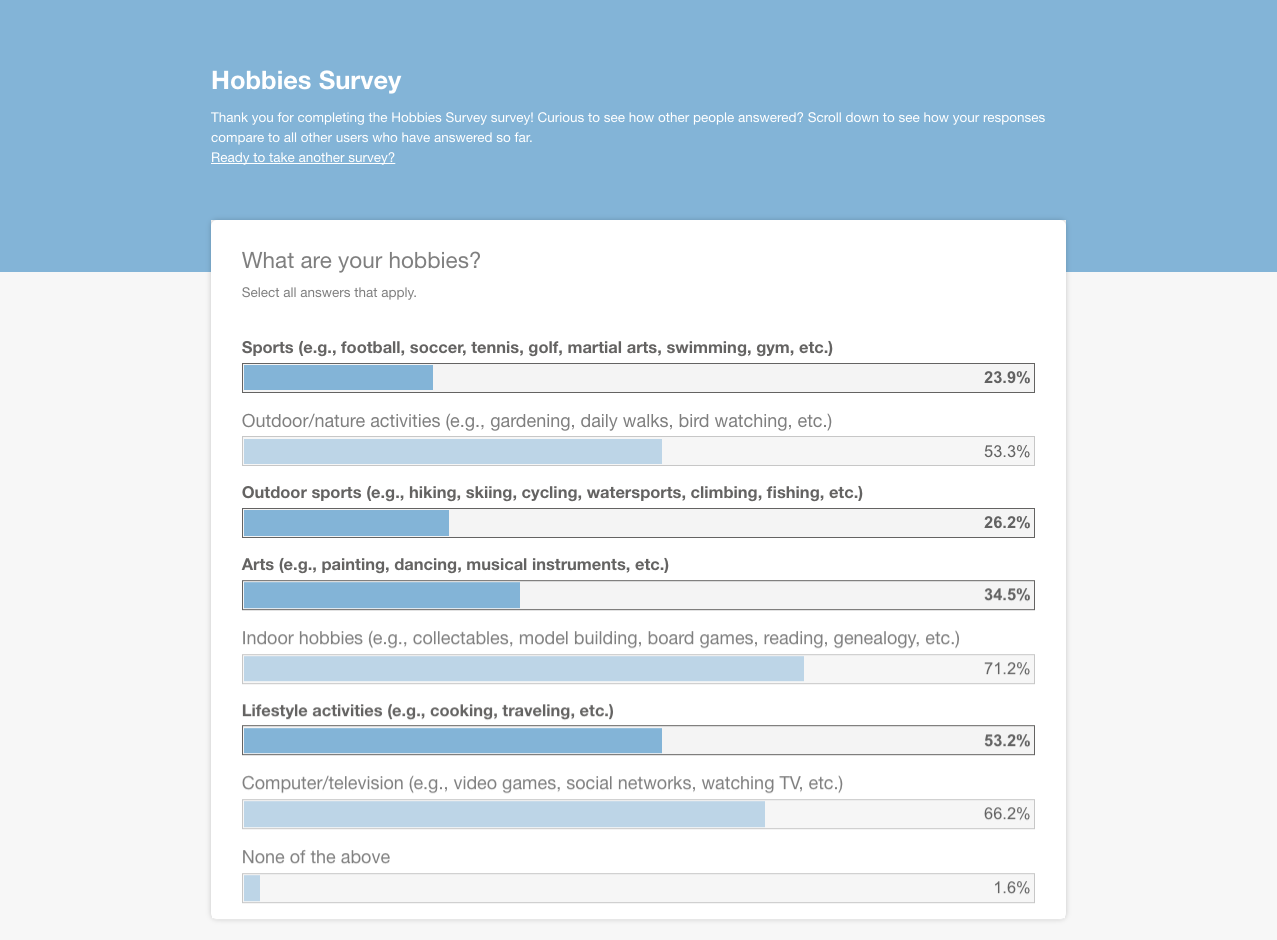
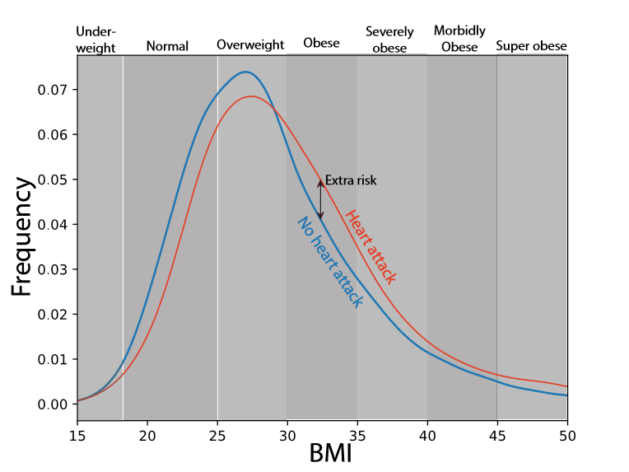
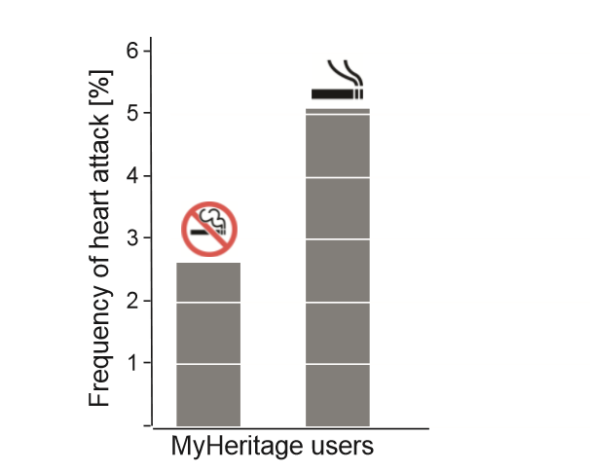

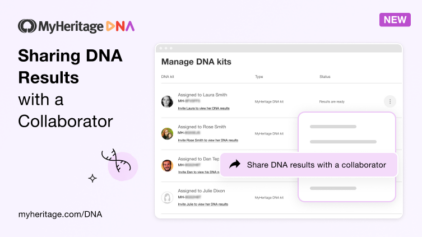
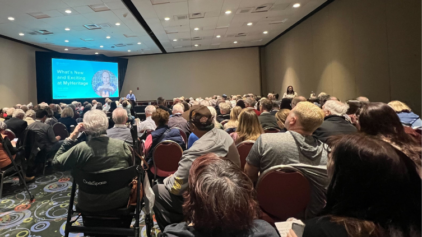
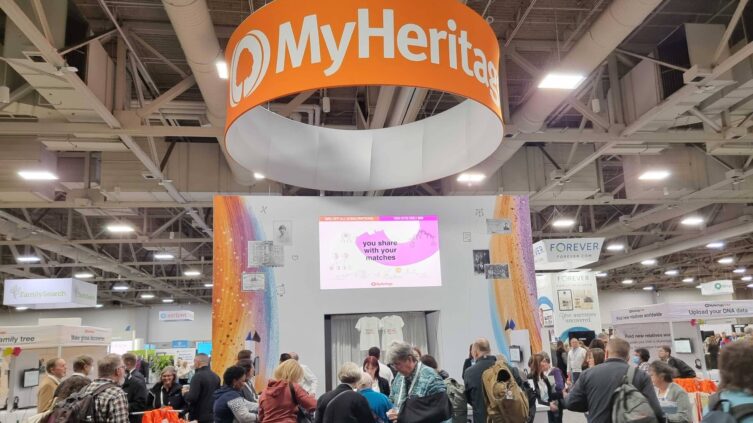

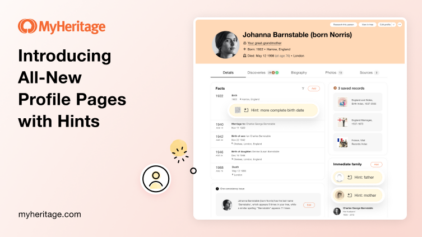
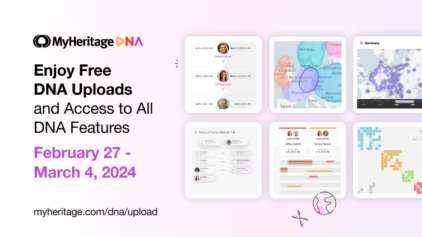
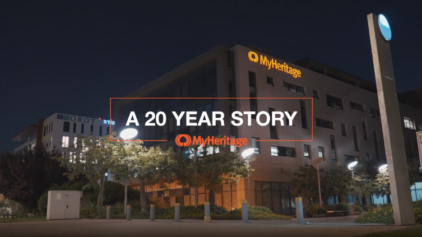


Garnet
January 11, 2018
I have just purchased a My Heritage plan and am now able to see all members of the family.